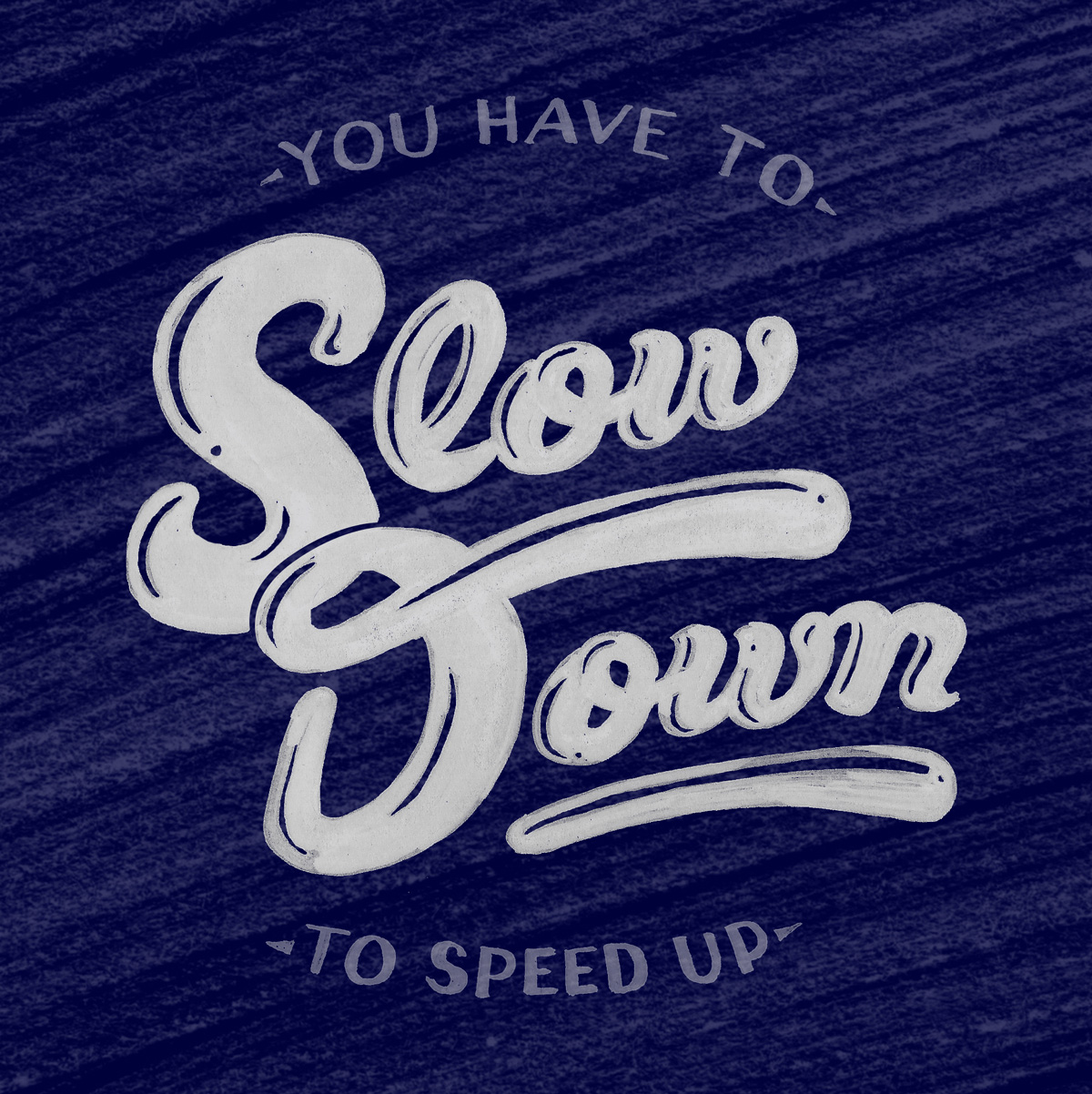The Value of Impatience
A few months after i finished college back in 2012, I ventured out to a job interview at a well-known tech company. I walked in with a fresh haircut, no hat, wearing a tie (these are all very rare for me).
"I got this"
The first interview went fairly smooth. One week later I met with their Director of People and Culture – a woman with glasses, dark red lipstick and an intimidating tone of voice. As a confused design school grad, my goal in that moment was to get on her good side.
She grilled me with a series of difficult questions. There was one that stuck out to me and has been on my mind lately:
"Do you consider yourself to be a patient person?"
On the surface it seemed like a simple 'yes' or 'no' question, but could it have been a test? The more I thought about it, I realized that it really depended on the situation. Sometimes we must be patient, and sometimes it helps to be impatient.
We live in the age of instant gratification.
People say millennials lack patience, but it's obvious that we are all getting more impatient by the day. We can now connect, learn, collaborate and purchase things endlessly through the internet with the click of a few buttons. This massive change has caused the effectiveness and value of our time to skyrocket. "Ain't nobody got time for that!"
We've come a long way, but we are still far from being able to download skill mastery directly into our nervous systems (Matrix-style). What that means for us lettering nerds is the only real way to get better is to practice, practice, practice.
I know. You've heard it a million times. "Patience is a virtue," but the reality is – we are not patient most of the time.
If you have big goals and you're impatient, yet lazy, you won't get very far. You can be impatient and actually use that energy to take action. This mentality has served me well – it's core to how I approach my work, with a sense of urgency.
Here's the underlying approach: do something tangible and do it better than you did last time.
This could mean starting a new project, doing a quick exercise, or revisiting your old work. Anything works as long as you can see the result.
Rather than comparing your work to others', compare it to your old work to keep track of improvement. You can do the same thing with your process if you slow down for a second.
Here's a lettering piece I made back in 2012 when I was just starting to practice daily:
I made this when I was just starting to practice lettering daily. It's fun to look back and see all the mistakes I overlooked. This piece was a quote from a sign painter named Jon Bocksel who I used to do assist from time to time.
As you can imagine, painting signs is tough to do if you are impatient. He taught me how to better balance planning and action, the micro view and macro view. He demonstrated how "less is more" in the art of sign painting. You gotta zoom out from time to time, in order to make the right move forward.
Put your experiments out in the world.
It's easy to get sucked into one piece of lettering, spending days or weeks refining tiny little details, thinking and overthinking. Refinement helps you train your eye and your hand, but after too long you will burn out and want to give up because you can't make it 'perfect'.
If you are just starting out, I urge you to jump in head first. No one is going to hold your hand and tell you what to do each step of the way. I don't mean to quit your day job right away. If you are excited about what you are doing, use your free time to experiment, make lots of work and put it up online asking for constructive feedback.
Speaking of experimentation, I love this idea I heard from Andy J Miller says on the Creative Pep Talk podcast: "Don't draw better. Draw different!" I've found this is one of the best ways to improve your skills. I'll get more into that in a future post.
“I like impatient clients—and not just because they remind me of myself. They bring energy and intensity... They’re motivated. They have an agenda to get better and that’s exactly the energy I’m looking for. I think all of us have that intensity, to some degree, but we’ve learned to mask it.”
It's taken a while for me to finally embrace my creative impulses and use them to my advantage. If you're feeling impatient with your goals, know that it's alright and you are not alone.
Key Takeaways:
When you have big goals and are impatient, you can bring a sense of urgency and drive to your work.
- Impatient people take action. No one is going to make your goals a reality except for you.
- Zoom out from time to time to reflect.
- Experiment, make lots of work and put it out there.
- What can you do right now is what matters, not 'some day'.
- Stop talking. Start making.
I didn't end up getting the job at that tech company by the way. I gave a super lame answer and it turned out they "looking for impatient people to join our team." Go figure.




